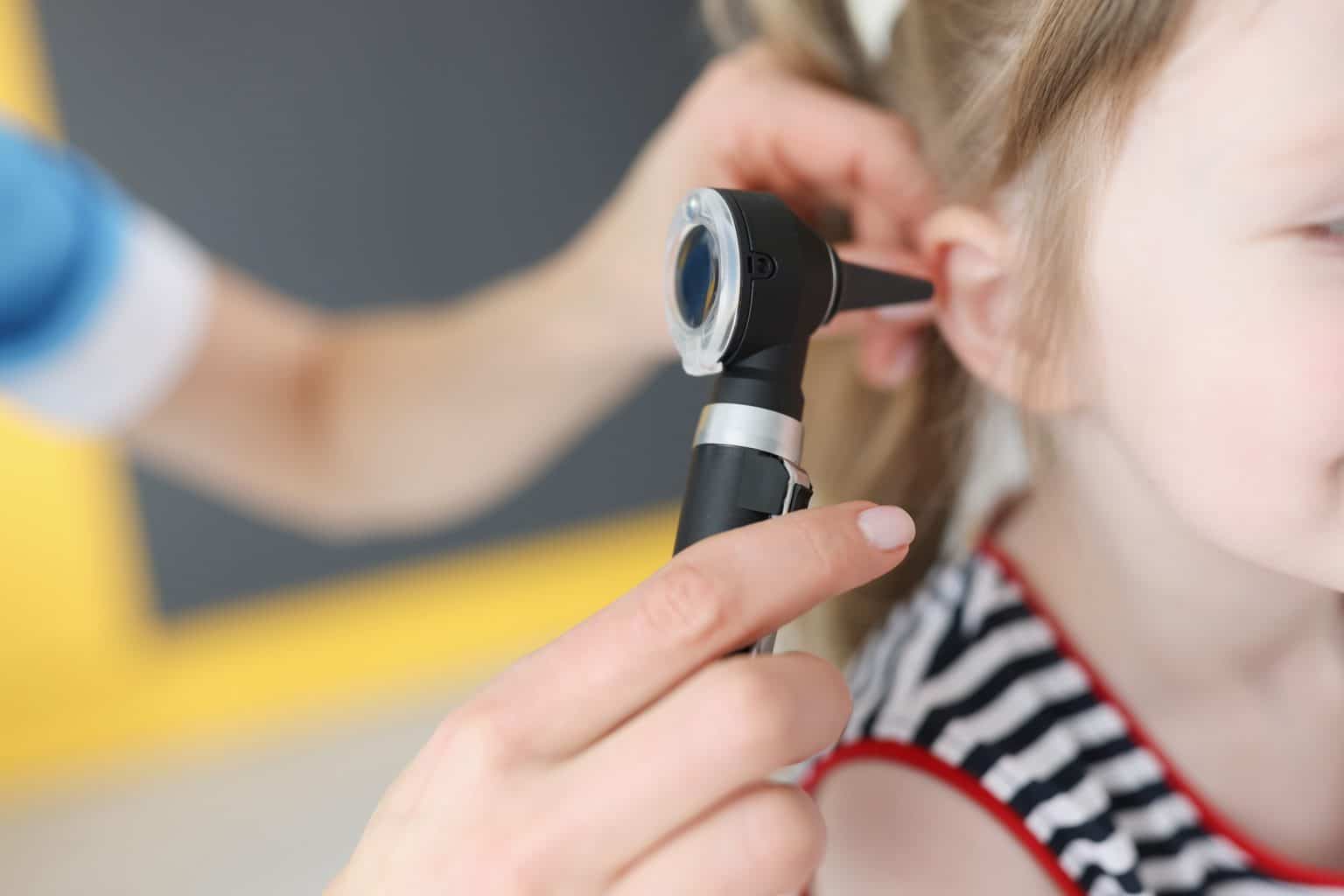What’s worse than when your child has an ear infection? How about when they have a double ear infection? Double ear infections, also known as bilateral otitis media, mean you have an infection in both of your ears simultaneously. Below we review how ear infections occur, what the symptoms are, the difference between bilateral and unilateral (one-sided) ear infections and what treatments are available.
How Do Ear Infections Occur?

Ear infections occur when fluid becomes trapped in the middle ear behind the eardrum. They are usually the result of inflammation of the Eustachian tubes – which connect the middle ear to the back of the throat to allow fluid to drain and air pressure to equalize – usually due to allergies or an upper respiratory infection.
What Are the Symptoms of an Ear Infection?
Symptoms of an ear infection, whether unilateral or bilateral, include:
- Drainage from the ears
- Difficulty sleeping
- Hearing loss
- Earache
- Fever
- Nasal congestion
- Hoarse voice or cough
- Rhinitis
- Poor appetite
Young children cannot vocalize whether they’re experiencing these symptoms, but a sign that they are is that they’re tugging on their earlobes and/or they have a fever.
What Is the Difference Between a Bilateral & Unilateral Ear Infection?
While the clinical picture of a double ear infection is frequently more severe than that of an infection in only one ear, the overlap of clinical symptoms is common. In other words, the main difference between the two is symptoms are more severe and affect both ears with a bilateral infection.
How Are Ear Infections Treated?
The treatment your doctor or your child’s pediatrician recommends is based on the severity and duration of symptoms.
Home Remedies
If your or your child’s symptoms are mild, the physician may recommend home remedies. You can place a warm compress – a washcloth soaked in warm water and wrung out – over the ears to relieve pain and pressure.
Medications
To ease ear pain, you can take over-the-counter acetaminophen or ibuprofen from Ward Road Pharmacy. Your doctor may also prescribe antibiotics to treat the infection if it doesn’t clear up within a few days. These can be in the form of oral medication or eardrops.
Ear Tubes
If your child is suffering from chronic, recurring ear infections, they may need ear tubes surgically placed. These tubes allow fluid to drain from the middle ear and help treat and prevent future infections. For more information or to schedule an appointment with an ear expert, call Advantage ENT & Audiology today.